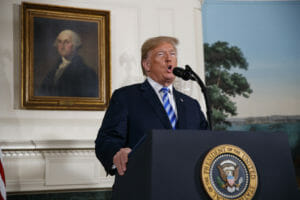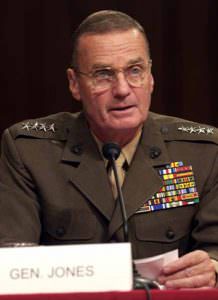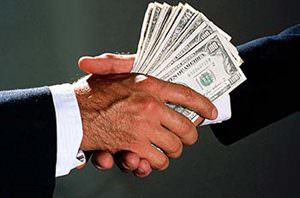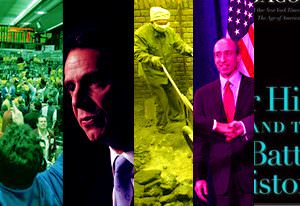It’s Over — and Not a Moment Too Soon
George W. Bush promised to restore "honor and dignity" to the White House, but he leaves with less honor and with lower public approval than any other president since Richard Nixon.Sixteen years ago, as another Bush ended his presidency, the retrospective I wrote began by noting that George Herbert Walker Bush once said he’d aspired to the Oval Office because he was awed by “the honor of it all.”
Now his son leaves the White House with less honor and with lower public approval than any other president since Richard Nixon, who resigned in disgrace over Watergate. The public bursts with expectation for the presidency of Barack Obama, who is seen as a savior from the political stress of the past eight years.
Bush’s campaign catchphrase in 2000 was that he would restore “honor and dignity” to the White House after the ethical imbroglios of the Clinton era. It was a cruel and cynical platitude. This was evident even before he was sworn in.
Bush’s strategy during the Florida recount that would put him in the Oval Office was to flex his family’s political muscle, manipulate Republican sycophants who oversaw state elections, and get the courts to shut down the vote count. Who can forget the shocking “white-collar riot” staged by a phalanx of Republican operatives who descended in a shouting, fist-pounding mob on a municipal office in Miami where ballots were being tallied? The intimidation worked to stop the counting that day.
Bush has not expressed shame or sorrow at this mocking of democracy. The affront to the rule of law was established as precedent. The world would soon experience the same bullying tactics.
The nation would also weep at Bush’s odd detachment from the consequences of his actions — or inaction, as in the tragedy of his gross failure to respond properly to Hurricane Katrina. The president in his farewell news conference lamented being misunderstood because he didn’t do some things differently — “like land Air Force One either in New Orleans or Baton Rouge.”
The comment suggests that he still smarts from the criticism he received for the disturbing photo of him staring at the destruction through his airplane’s window. In fact, his reputation suffered from the ineptitude his administration demonstrated before and after the storm struck. The imagery merely captured this impotence.
The failures, deceptions, lawbreaking, incompetence and ideological zealotry that comprise the record of George W. Bush’s presidency do not portend a more favorable look back, as the president hopes, when historians examine it.
At home, there are but two legislative achievements he can claim. The No Child Left Behind Act has begun to change attitudes about education, but it is challenged by governors and school officials in both parties for its rigid and punitive aspects. The addition of prescription drug coverage to Medicare was overdue — but ended up being overdone, as was so often the case with legislation in the Bush tenure, when the president allowed members of his party to lard it with excessive payments to private insurers and insist that private interests effectively control the program.
In foreign policy, it will be decades before we can know the full consequences of Bush’s invasion of Iraq and the failure to have properly planned for an occupation. The renewed bloodshed in Gaza cannot be laid at Bush’s door. But Bush refused for years to engage the United States in the arduous but necessary duty as an indispensable broker in the Middle East conflict.
It is often said that the Bush presidency was defined by the terrorist attacks of Sept. 11, 2001, and indeed it was. But in constructing his own narrative, Bush conveniently leaves out the eight months that preceded the attacks, when intelligence and law enforcement officials were warning repeatedly of an impending attack and the young administration did not hear — or paid no heed. The brutal treatment of detainees and the indefinite detention of terrorism suspects, ruled unconstitutional by a conservative-leaning Supreme Court, were calamities built upon this initial catastrophic failure.
Through all of this, Bush has displayed a remarkable personal resilience, and still shows flashes of the good humor that helped to elect him. First lady Laura Bush has been a gracious and calming presence in turbulent times.
Nonetheless, this president departs with the economy in the worst condition since the Great Depression, and with his reputation a shambles even among members of his own party.
In 1993, I noted that Bush’s father was a fine public servant but an ineffective leader. His son led with steely determination, and took us down a devastating path.
Marie Cocco’s e-mail address is mariecocco(at)washpost.com.
© 2009, Washington Post Writers Group
Your support matters…Independent journalism is under threat and overshadowed by heavily funded mainstream media.
You can help level the playing field. Become a member.
Your tax-deductible contribution keeps us digging beneath the headlines to give you thought-provoking, investigative reporting and analysis that unearths what's really happening- without compromise.
Give today to support our courageous, independent journalists.






You need to be a supporter to comment.
There are currently no responses to this article.
Be the first to respond.